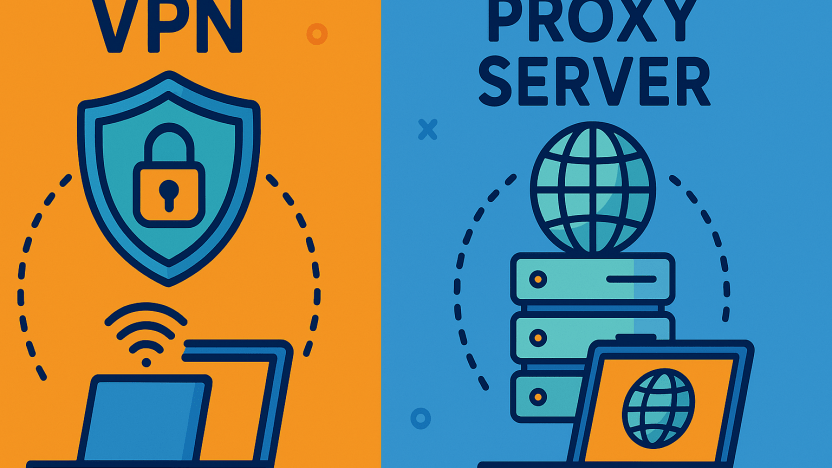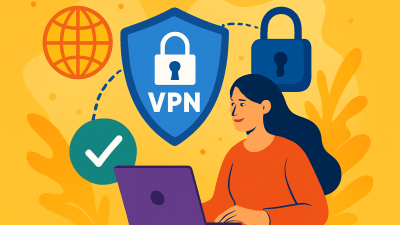When it comes to safeguarding your online privacy, the debate between using a VPN and a Proxy Server is crucial. Both tools offer ways to hide your IP address and access restricted content, but they serve different purposes and provide varying levels of security.
VPN vs Proxy Server: Understanding the Differences
VPN vs Proxy Server
Concept of Proxy Server
Proxy servers manage network traffic and increase efficiency. They originated from ARPANET, a project developed by the United States Department of Defense, Pronto Chester University, and a consortium of private industries in early 1969, funded according to military specifications.
In the past, methods like “gateway” systems managed access to different networks. These aren’t exactly proxies as we understand them today, but they laid the groundwork for concepts like packet forwarding.
All about VPN
Imagine a secret tunnel where all your internet traffic travels, shielded from hackers, advertisers, or even your internet service provider.
This is what a VPN offers—a cloak of privacy and a passport to unrestricted digital exploration, making it an indispensable ally in today’s interconnected world.
What Does VPN Stand For?
A VPN, or Virtual Private Network, creates a secure and encrypted connection over a less secure network like the internet.
The term “Virtual” refers to the network being software-based, not physically present. “Private” indicates that the data transmitted across this network is protected from unauthorized access, ensuring privacy and security. Finally, “Network” signifies the interconnected system of computers or devices.
The primary purpose of a VPN is to provide users with online privacy and anonymity by masking their IP address and encrypting their internet traffic. This makes it difficult for hackers, government agencies, or even internet service providers to track online activities or intercept sensitive information.
VPNs are widely used by individuals who want to protect their personal data on public Wi-Fi networks and by businesses that need secure remote access for employees working from different locations.
How Does a VPN Work?
A VPN enhances online privacy and security by encrypting your internet connection and creating a secure tunnel for your data. But how does it work?
At its core, a VPN routes your device’s internet connection through the VPN’s private server instead of your ISP. This process masks your IP address and makes it appear as though you are accessing the web from the VPN server’s location.
The key to this secure connection lies in encryption. When you connect to a VPN, it encrypts all data traveling between your device and the internet using complex algorithms.
This encryption ensures that even if someone intercepts your data, they cannot decipher it without the correct decryption key. Most modern VPNs use advanced encryption standards like AES-256, which is virtually unbreakable.
One significant real-world application of this technology is connecting to public Wi-Fi networks. Public Wi-Fi hotspots are notoriously insecure, making them prime targets for hackers looking to intercept sensitive information such as passwords or credit card numbers.
By using a VPN on public Wi-Fi, you create an encrypted tunnel that shields your data from prying eyes, allowing you to browse safely even on unsecured networks.
VPN vs Proxy Server:
VPNs and proxy servers both improve online privacy and security, but they work differently and serve different purposes. Knowing the difference between them is important in selecting the right solution to fit your needs.
Why Security Matters
VPN (Virtual Private Network):
A VPN creates an encrypted and secure tunnel from your device to the web. This means all your internet traffic routes through the VPN server, effectively masking your IP address and encrypting your data.
This encryption secures your online activity from eavesdropping, making a VPN a great option for privacy- and security-minded users.
Proxy Server:
A proxy server acts as a go-between for your device and the internet. When you use a proxy, you send requests to websites through the proxy server, which then forwards them to the destination website. Proxies can mask your IP address, but they don’t encrypt traffic, leaving your data exposed to interception.
Security
VPN:
VPNs offer strong security features by encrypting all data flowing over your network. This encryption makes it extremely difficult for hackers or other third parties to read your data when they intercept it.
On unsecured networks like public Wi-Fi, encryption makes man-in-the-middle attacks virtually impossible.
Proxy:
Proxies offer minimal security since they don’t encrypt your data. While proxies can mask your IP address, any data passing through a proxy is vulnerable to interception.
Privacy
VPN:
VPNs mask your IP and keep your online activities private from ISPs and other entities. This makes VPNs highly effective at unblocking geo-restricted content or bypassing blocks.
Proxy:
Proxies can mask your IP address, but they don’t provide the same level of privacy as VPNs. Some proxies may log user activity and compromise your privacy if they misuse that data.
Speed and Performance
VPN:
VPNs may introduce some latency due to encryption overhead, but most good VPN services optimize their servers to minimize speed loss. A decent VPN should maintain a stable speed that supports typical online activities.
Proxy:
Proxies can offer faster connections since they don’t encrypt traffic. However, free proxies tend to be slow due to limited bandwidth from a high number of users.
Use Cases
VPN:
VPNs are perfect for users who need secure and private web experiences, whether browsing websites, accessing geo-blocked content, or connecting to public Wi-Fi networks. VPNs help ensure secure online activities.
Proxy:
Proxies serve a more specific purpose, such as unlocking content on select websites or applications when encryption isn’t necessary. They are also easier to install and may be cheaper for casual users.
In summary, while both VPNs and proxy servers can enhance online anonymity, VPNs provide stronger security due to encryption and broader privacy protections. Users should consider their specific needs—whether they prioritize speed, cost-efficiency, or comprehensive security—before choosing the right option.



